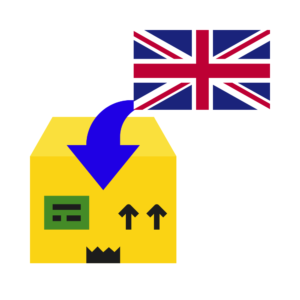Back at the start of 2020, when all European exporters had to worry about was Brexit, a European customs broker, Gaston Schul, was getting prepared for what they knew was going to be a problem that needed a solution. Thousands of companies who had hitherto never had to worry about paperwork to buy and sell across borders were about to face a rude awakening following the changes Brexit would bring about.
A decision was taken that Gaston Schul needed a base in the UK. In the middle of February 2020, a journey to the UK confirmed that they had found their match: MRF Customs Clearance Ltd., based in Grimsby.
like-minded.
Gaston Schul, despite its 175-year history, is not a traditional customs broker. Modern, high-tech, priding themselves on their investments made in digitalisation and no-nonsense advice, they wanted a lawyer to match. That was where Lawbox Design came in.
M&A transaction.
We were able to support the team, based in the Netherlands, completing its acquisition quickly and pragmatically. Rob Ewalds, CEO, said,
“I was positively surprised how easy it all was via teams and how quickly Lawbox Design adapted. The negotiations were spot on and concluded quickly.”
Of course, the secret was that Lawbox Design has always had a remote set-up, so for us, whilst Covid-19 caused many to pivot to remote working, for us it was business as usual. And so it was that, by the start of July 2020, Gaston Schul was able to call the UK home.
one-stop UK import/export.
This courageous decision has meant that Gaston Schul can now provide a one-stop shop to companies looking to export into the UK from the European Union, and vice versa. Not only can the company support with export documentation, but they can also provide import clearance on the other side. This has proved invaluable to their customers.
client Q&A.
We caught up with Rob and fellow director, Sander van Lent, just over a year since that last trip to the UK, to find out how they have dealt with the impact of Brexit.
Q. What was the impact of Brexit on your business?
A. Brexit has been a hot topic for us, and our customers, for many years now. Negotiations took a long time, so, early on, we took the decision to invest in people and IT. Those early decisions have now translated into huge benefits for our customers.
We have a Brexit export portal that helps companies get their export documents on a self-service basis. We also set up a “one-stop customs shop” through our acquisition in the UK, helped by Natalie at Lawbox. Even now there are not that many customs brokers that have done this, so we are really proud that we made that move, which was seen as courageous at the time.
It was important for us to conclude the acquisition quickly, so we really valued Natalie. She focused on the items of real importance to us. These acquisitions can take months and become very focused on technical legal issues. This acquisition was really focused on getting the deal done.
Q. What was the biggest impact of Brexit on companies that export across the Channel?
A. At the start, we did see a drop-off in volume. Companies were not prepared for the paperwork, and it was worse on the UK side. Many companies waited, heard Boris Johnson’s announcement on 24 December 2020, and then had little time to prepare. The initial period was one of trying to understand how things would work. We received lots of calls from new customers who just did not know what to do.
Q. What have the biggest challenges been?
A. European companies had never dealt with customs on short-sea carriage; in a matter of a couple of hours, you need to be ready with the export and import. Coupled with the high volume of entries, this was really a big concern. This is where compliance comes in. If companies weren’t prepared and didn’t get their head around the paperwork, they were in trouble. As we have invested heavily in digital processes and had a base on both sides of the channel, we were able to support our customers in this regard.
Q. Have you seen companies thinking twice about exporting?
A. The UK is a huge market for the European Union, and vice versa, so, for many companies, not exporting is not an option. However, I suspect that companies who have tried to get their head around this without a professional, might well be asking themselves why, or still working out how!
Q. What advice would you give for companies thinking about starting to export?
A. Call us, of course!
In all seriousness, do your homework, and then start sending goods. Not the other way around. Know what the actual cost price is going to be. There are costs around the documentation, the port community systems charge to enter the UK market and, if goods are coming from an origin outside EU, you must pay duties. You have to be careful as there is a higher cost price for trading companies now.
In terms of documentation, you need a flawless procedure and to get the information ready.
Finally, make sure to fully understand who is responsible for the costs, look at the Incoterms, which is key to success.
Q. What is the advantage of having a customs broker?
A. It is almost impossible to do this without one. We have the licences to do customs entries. Also, it is a taxed entry, so you really need a professional who knows this field to help.
Q. So, what’s next for Gaston Schul?
A. We are now about to open a new office in the UK and, again, it is all being done remotely.
To find out more about exporting into, or out of, the UK, you can contact us at info@gaston-schul.com.
focused, successful negotiations, led by experts.
Thank you to Rob and Sander for their time and knowledge – of course, we also wish Gaston Schul all the best on their latest endeavour in the UK!
To find out how Lawbox Design can help your business to focus negotiations on what really matters, get in touch.